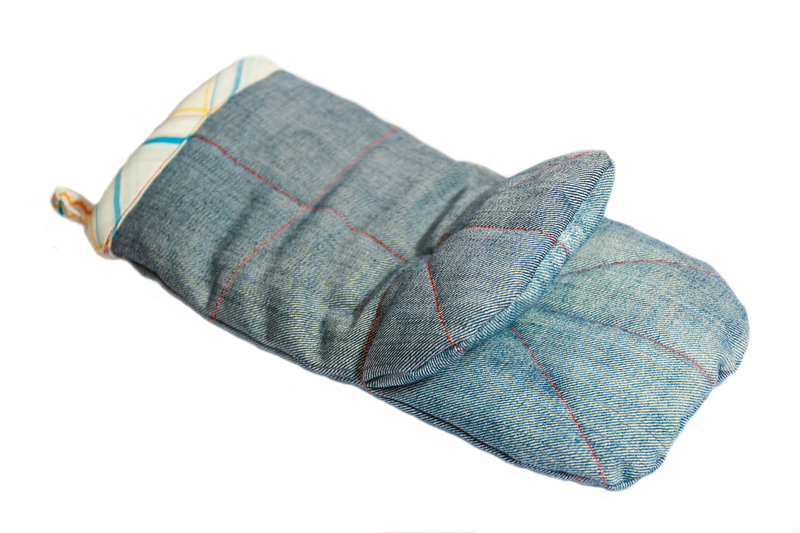Understanding the Role of Builders Skips on Construction Sites
Construction sites generate a remarkable amount of waste - from debris, packaging, and scrap materials, to leftover products and broken tools. Managing this chaos is paramount not just for safety and efficiency, but also to ensure compliance with environmental regulations. This is where builders skips become absolutely indispensable. But what exactly is the role of builders skips in construction, and why are they crucial for modern building projects? In this comprehensive guide, we'll delve deeply into the functions, benefits, and best practices associated with builder skips on construction sites, and reveal how effective skip hire can optimise your next project.

What Are Builders Skips?
A builders skip is a large, open-topped waste container, purpose-built to hold and transport construction and demolition waste. Available in various sizes, builders skips are made from robust steel, capable of withstanding heavy and bulky materials that commonly arise during building work. Often seen stationed at the edge of construction sites or even on public highways (with the appropriate permits), they serve as central repositories for waste, helping teams keep sites clean, organised, and safe.
Types of Builders Skips
- Mini Skips (2-3 yards): Suitable for small renovations or domestic construction tasks.
- Midi Skips (4-6 yards): Ideal for bathroom/kitchen refurbishments or moderate site clearances.
- Builders Skips (8 yards): The standard for most construction jobs, capable of handling substantial volumes of mixed waste.
- Maxi Skips (10-18 yards): Designed for larger construction or demolition projects with high waste volumes.
Depending on project scope and waste characteristics, construction managers can select the optimal skip size to maximize efficiency and reduce costs.
Why Builders Skips Are Integral to Construction Projects
The use of builders skips on construction sites offers a multitude of benefits. Let's examine the key reasons why they are considered a construction necessity:
1. Efficient Waste Management
Keeping waste under control is one of the biggest challenges in any building endeavor. Worker safety, productivity, and site organization all hinge on efficient waste handling. Builders skips provide a single, designated space for all non-hazardous debris - eliminating unsightly and dangerous waste piles, and reducing the risk of accidents, injuries or fires.
2. Time and Cost Savings
Proper skip hire can save significant time and money on construction sites. Without a builder's skip, site personnel might need to transport waste themselves, often in multiple trips, using vans or trucks. This not only consumes hours that could otherwise be spent on core tasks, but also increases fuel and disposal costs.
With a strategically located builder's skip, waste can be added as it's generated - streamlining site workflow and enhancing productivity. Furthermore, professional skip hire companies handle both delivery and collection, further minimising downtime.
3. Environmental Compliance and Sustainability
The construction industry is now strictly regulated to reduce environmental impact. Legal requirements often mandate responsible disposal, recycling, and record-keeping for construction waste. Builders skips make it far easier to comply with these regulations: waste is securely contained and convenient for certified contractors to sort, recycle, and process. Skips also help prevent wind-blown litter or contamination of surrounding land and waterways.
4. Improving Site Safety
Clutter and stray debris can be significant trip hazards. In the worst cases, nails, glass, splinters or gas canisters left about the site can cause serious injuries or even fatalities. Having builders skips on site ensures that such risks are minimised, creating a cleaner, safer environment for everyone involved - from construction workers to inspectors and visitors.
The Process of Skip Hire for Building Projects
Understanding how to hire a builders skip is vital for maintaining efficiency and regulatory compliance. The usual process includes:
- Assessing Waste Volume: Estimate your total waste output as accurately as possible.
- Selecting the Right Skip Size: Larger skips cost more, but overloading small skips is illegal and unsafe.
- Booking and Delivery: Arrange for delivery to coincide with the project's commencement. Ensure the skip is placed in an accessible, safe area.
- Ensuring Permits: If the skip must be placed on a public road, obtain a council permit through your skip provider.
- Filling and Segregating Waste: Only approved materials should go into the skip; some items, like asbestos, require special handling.
- Collection and Disposal: When full, the contractor collects the skip and ensures legal, responsible waste management.
Best Practices for Using Builders Skips on Construction Sites
- Don't Overfill: Keep waste level with the rim. Overfilling is illegal, unsafe, and skip companies may refuse collection.
- Segregate Waste Types: Recyclables, hazardous waste, and general rubble may need to be kept separate to comply with local regulations.
- Restrict Prohibited Items: Batteries, chemicals, tyres, liquids, plasterboard and electrical goods often can't go into builders skips.
- Optimise Skip Placement: Put skips close to work areas, but avoid blocking access or pathways.
- Educate Your Team: Ensure all workers know the rules for skip use, including what can and cannot be deposited.
Types of Construction Waste Handled by Builders Skips
Understanding the diversity of waste produced on construction sites is essential for selecting the right skip and maximising recycling opportunities. Builders skips typically handle:
- Concrete, bricks, and rubble
- Wood, timber, and pallets
- Scrap metal
- Packaging (plastic, cardboard, foam)
- Soil and landscaping waste
- Uncontaminated general waste
Some skips are designated as "mixed waste", while others may require segregation by material type. This helps construction sites to meet recycling targets and avoid contamination that could lead to costly fines.
Builders Skips and Sustainability on the Construction Site
With the growing focus on sustainable building practices, builders skips have evolved far beyond simple waste containers. Forward-thinking contractors now use skips to directly support environmental goals.
- Recycling Initiatives: Professional skip hire companies often sort skip contents at licensed facilities, maximizing materials sent for recycling or reuse.
- Waste Tracking: Modern skip services provide digital reports and traceability, essential for sustainable site management and BREEAM or LEED certification.
- Reduced Landfill: Effective use of builders skip hire helps construction sites send less waste to landfill - a significant contribution to greener building.
Integration with Site Waste Management Plans (SWMPs)
Many major construction projects now require detailed Site Waste Management Plans. Builder skips serve as the foundation for these efforts - enabling teams to sort, log, and monitor waste streams with clarity and efficiency.
Legal Responsibilities and Safe Disposal
In the UK and many other countries, construction firms have a strict legal duty of care to manage the waste they generate - ensuring it does not harm health or the environment. This encompasses:
- Using a Licensed Skip Provider: Always verify that your skip hire company is registered and certified for commercial waste collection.
- Documenting Waste Movements: Keep records of all waste tonnages and transfer notes for possible inspections.
- Avoiding Fly-tipping: Illegally dumped waste can result in substantial fines or prosecution for both the company and site manager.
By employing reputable builders skip hire services, construction professionals not only adhere to legislation but also demonstrate environmental and community responsibility.
Innovations Shaping the Future of Builders Skips
The role of builders skips on construction sites continues to evolve with advances in technology and sustainability. Some emerging developments include:
- Smart skips: Equipped with RFID tags or fill-level sensors that alert site managers when collection is needed.
- Modular skip systems: Allowing waste to be easily sorted at source and transported for direct recycling.
- Lightweight, durable materials: Newer skips are designed for ease of transport and reduced carbon footprint.

Choosing the Right Builders Skip for Your Next Project
When planning a building project, the right choice of worksite skip is key to a stress-free, compliant, and cost-effective job. Consider the following:
- Project size and duration: Longer or larger works will often require multiple skips or regular exchanges.
- Waste composition: Identify if you need mixed or segregated skips for wood, metal, rubble, etc.
- Location: Permits and access for skip placement must be considered before work starts.
- Skip company reputation: Choose a trusted provider with strong recycling records and proper licensing.
Conclusion: The Unseen Hero of Construction Efficiency
While they may not get as much attention as cranes or concrete mixers, builders skips are the unsung heroes of every successful building project. They help to keep sites clean, safe, and compliant; enable effective waste management; reduce project costs; and increasingly contribute to sustainable construction practices.
By understanding the importance of builders skips on construction sites and implementing best practices for their use, construction professionals can reap substantial benefits - from faster completions to improved safety records and a greener, more responsible industry.
Are you planning a renovation, extension, or new build? Make builders skips a cornerstone of your project's logistics, and experience the difference in site efficiency and peace of mind.
Key Takeaways
- Builders skips are essential for safe, efficient, and compliant waste management on construction sites.
- Selecting the correct size and type streamlines workflow and controls project costs.
- Modern builders skips contribute to sustainability by underpinning recycling and waste reduction initiatives.
- Proper skip hire ensures legal compliance and avoids environmental penalties.
Ready to enhance your next project? Start with the right builders skip and see the impact on productivity, safety, and the environment.